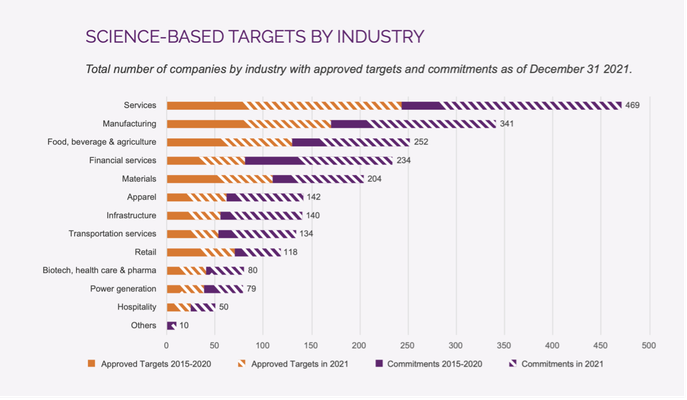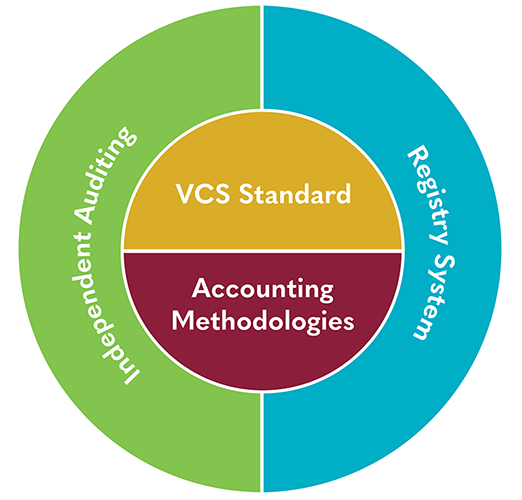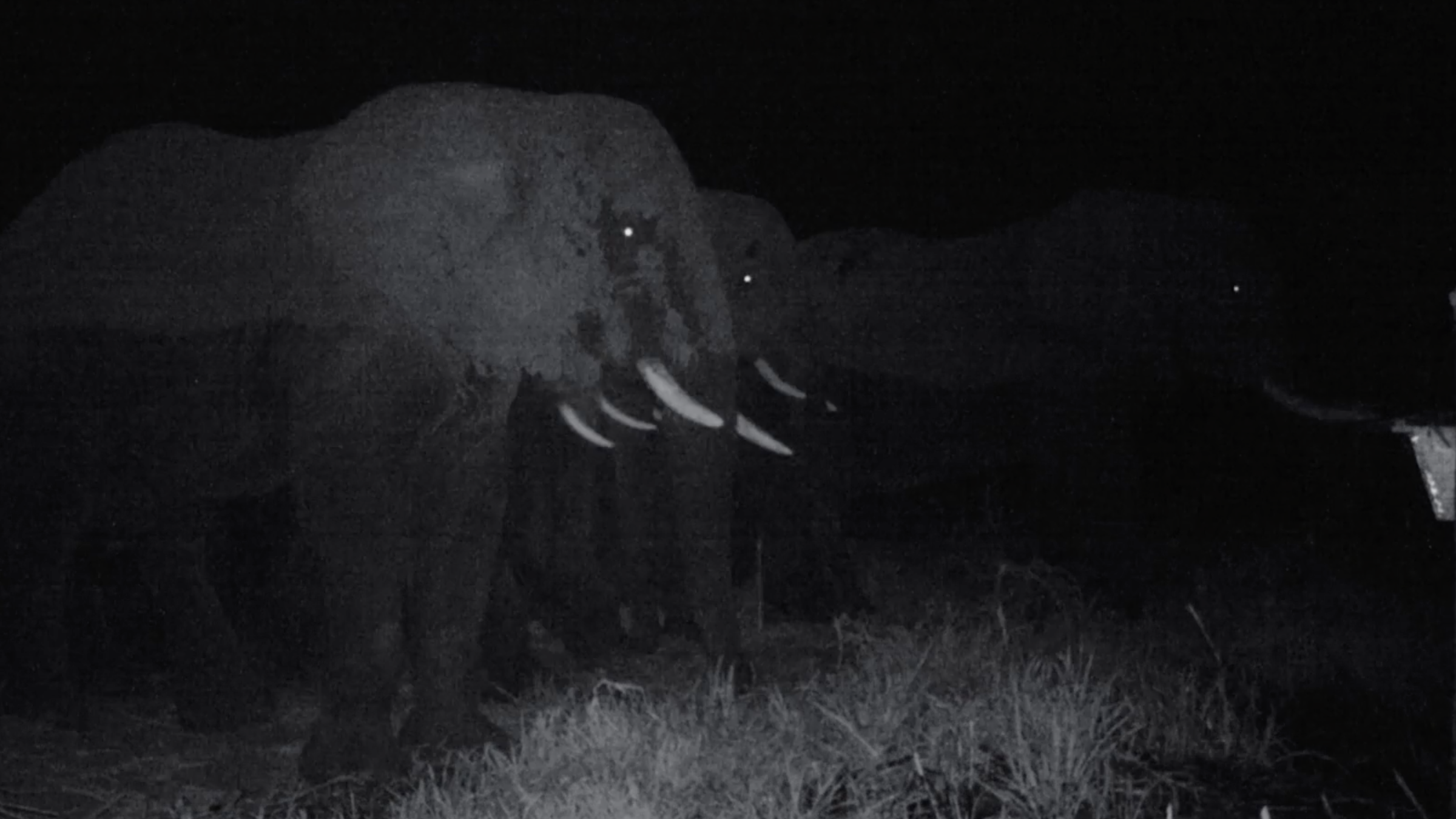Science-Based Target Initiative
The Science-Based Target initiative (SBTi) is a global body that seeks to enable companies to achieve their emissions reduction targets based on the latest climate science. The initiative started in 2015 as a collaboration between CDP (formerly the Carbon Disclosure Project), the United Nations Global Compact, the World Resources Institute (WRI), and the World Wide Fund for Nature (WWF). Its goal is to support companies to cut half of their emissions by 2030 and achieve net zero before 2050. In 2021, 2,253 companies committed to setting science-based targets, representing over a third of the global economy.

Science-based targets by industry. Image source: Science Based Target Initiative Annual Progress Report, 2021 Version 1.2, 2022:18. Retrieved 22 February 2023, from https://sciencebasedtargets.org/reports/sbti-progress-report-2021
During the ‘Unlocking Finance for Nature’ session in the Nature Zone Pavilion of COP27 in November 2022, Nancy Harris, research director of Global Forest Watch and the Land and Carbon Lab highlighted that:
“Under the science-based targets initiative, companies need to do two things related to land. They need to commit to ending deforestation in their supply chains, and they also need to set a target for reducing overall emissions. But also some companies with significant land-related emissions also need to set a separate land-related emission reduction target called a flag target. And so we know that there are a lot of companies out there – especially in the food and beverage and forest product sectors – that continue to have deforestation in their supply chains.”
However, a group of scientists from Europe, the United States, and Australia suggest that SBTi 's current approach for target-setting and validation is flawed. In October 2022, they sent a letter to SBTi arguing that the methods used rely on future emissions pathways that assume a temporary overshoot of temperature targets and the need for net-negative emissions in the second half of the century, which is speculative and incompatible with achieving 1.5 or 2°C targets. Additionally, SBTi's approach does not "ensure sufficient scrutiny" of self-reported greenhouse gas data submitted by companies, which may lead to misrepresentation of their GHG inventory. The letter suggests a preferable method would be to specify targets that align with a sectoral carbon budget.


